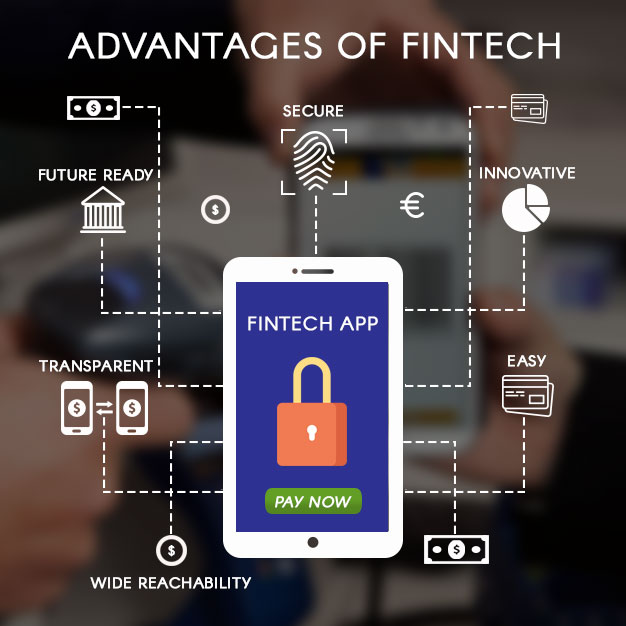Fintech Apps are growing fast. All you need to know
These days, we are hearing a lot about Fintech apps — especially in business circles. Experts of the industry have noticed there is a growth of 30% in finance apps in the recent years.
Fintech is something that is worth understanding about. While Fintech have once been limited to PCs, the term now has a broader sphere of influence. Mobile payments, crowdsourcing and even social media platforms have become part of Fintech revolution.
Fintech apps are appealing as they grew up with mobile devices. However, it is not the perspective on financial markets that made it possible, but the convergence of technology that enable companies to analyze information in new ways.
In this post, you will know everything in detail about Fintech revolution. After reading this post, you will understand – What is Fintech? Why it is important? What are its advantages? And what is the future of Fintech?
I am sure you will enjoy reading this post. Let’s get started……….
What is Fintech?
Fintech is nothing but abbreviation of ‘Financial Technology’ that aims to compete with traditional methods of finance. Many financial institutions consider this term as backend of their business and hence, regular banking apps are sometimes included in this term. Fintech industry comprises of mobile payments, money transfers, loans, crowdfunding, asset management and many other things.
Global investment in financial technology has exploded in the recent years, making the Fintech apps a multi-dollar industry. However, it is still dominated by companies that offer financial services and products. Banks are of course the major users of this technology. However, Fintech apps are changing the way financial institutions interact with their customers. The proliferation of Fintech apps has a great impact on the society, like – reducing the price paid by the customer, increased competition, easy access to financial services etc.
Now, the question is – who is active in Fintech and why? There are many startups and traditional finance companies that have invested in Fintech. Some companies integrate Fintech into their existing products/services, while others invest Fintech solutions in their own incubators.
Fintech apps are very diverse and range from mobile payments to budgeting. The most popular categories are – personal loans, automated investing, credit monitoring, budgeting, processing payments and cryptocurrency operations.
What is the advantage of Fintech?
As said above, Fintech encompasses a wide range of companies that use technology to provide financial services. Fintech companies are characterized as startups that are created to disrupt the traditional financial models. Large companies are recognizing the need of software solutions, and turning to Fintech to improve their financial services. Though Fintech is considered as a multi-billion dollar industry, it is still dominated by startups that offer financial services.
Fintech has leveled the financial industry, making financial services accessible to common people. Finance Technology made it much easier and cheaper to bring investment advice to common people. They are depending on different information, looking at things that traditional financial institutions never looked into. All this could not happen without powerful software and computer systems.
The number of players and services is plentiful in Fintech that include –banking, borrowing, investing, saving, purchasing, mortgages etc, giving new options to consumers.
Why Fintech solutions are important?
Fintech does not refer to one particular technology, and hence the impact can be felt across wide range of industries. Fintech apps are creating important changes to the way businesses secure funding and empowering startups to grow easily. Traditional investments such as banks and financial institutions are not suitable for short-term loans or may even risk business propositions. However, the modern investment platforms provide flexible payment options, giving rise to Fintech apps.
A recent report estimated crowdfunding to have potential market value of $1.2 trillion, making it the largest Fintech vertical. Not only this, Fintech apps have changed the way consumers view financial services. Today, customers expect banking transactions to seamless, quick, convenient and secured. Delays and inconvenience is no more accepted in the world of finance, as digital technology took it beyond customer expectation. Businesses that are able to match this expectation are overtaken by agile competitor.
What is the future of Fintech apps?
Well, it is too early to answer this question. Though Fintech apps grabbed the attention of professionals, there are still not considered as real managers of business transactions. Whether it is social networking or mobile apps, Fintech brought innovation to the industry that is facing the danger of stagnating. As of now, we can just answer the question–In which direction will Fintech go?
Here are the trends that are the best bets and we can expect the future of Fintech apps in these trends in coming years.
- Mobile transactions
We can see a drastic increase in mobile transactions in the coming years. It is estimated that more than 35% of smartphone users will use payment apps once in a month. This will allow smoother transactions for purchases as long as they grow quick enough to run companies.
- Biometric security
Mobile security is of utmost importance, as huge amount of money is often transferred using mobile devices. Innovative security measures such as- face recognition, iris scan, fingerprint recognition will likely to be used to accomplish transactions in the coming years.
The other growing trends like – always-on economy, on-demand services, Internet of Things (IoT) etc will continue to boost the growth of Fintech. We can expect more financial institutions to use the power of big data. There will be a great collaboration between traditional banks and Fintech apps in the coming years. Thousands of businesses may get on board with the revolution of Fintech apps in the upcoming years.
Conclusion
There is a tremendous change in the way people spend and send money. Fintech apps are forefront of that change. No doubt, Fintech solutions reduce the cost of many financial institutions as it replaces the traditional approach. Fintech companies have increased dramatically in the recent years from 1,000 to 8,000.
The retail industry is triggered by a number of factors. Earlier, consumers wanted Omni-channel solutions that offer seamless convenience. Moreover, merchants want lower cost payments and easy integration with value added applications. To meet the ever-changing demands of consumers and merchants, new technologies and digitization initiatives are reinventing traditional financial approaches. These forces are altering the payments space, leaving more room for Fintech solutions.
There is no doubt that Fintech’s emergence as a worldwide phenomenon has been sparked by strategic investment and tremendous growth. It is driven by payments, data analytics, lending and crowdfunding. Overall, the merchant payment services, infrastructure and new payment categories have received largest investment and are dominating the Fintech landscape.
Do you use any of the Fintech services? Share your experiences by commenting below. If you are interested in Fintech mobile apps, contact us today!
Still have your concerns?
Your concerns are legit, and we know how to deal with them. Hook us up for a discussion, no strings attached, and we will show how we can add value to your operations!

